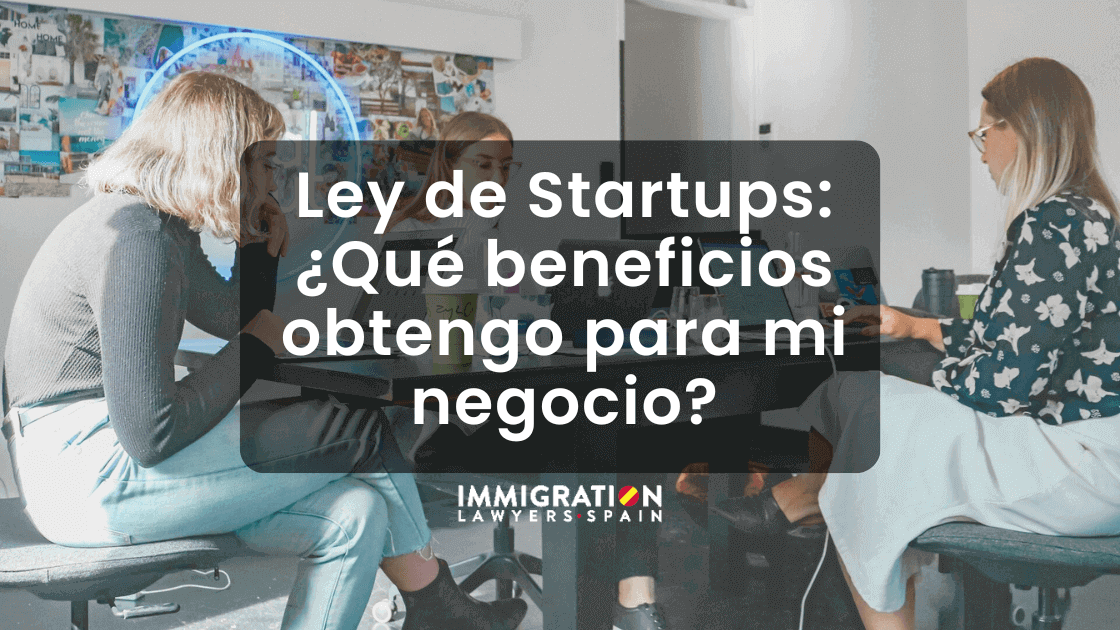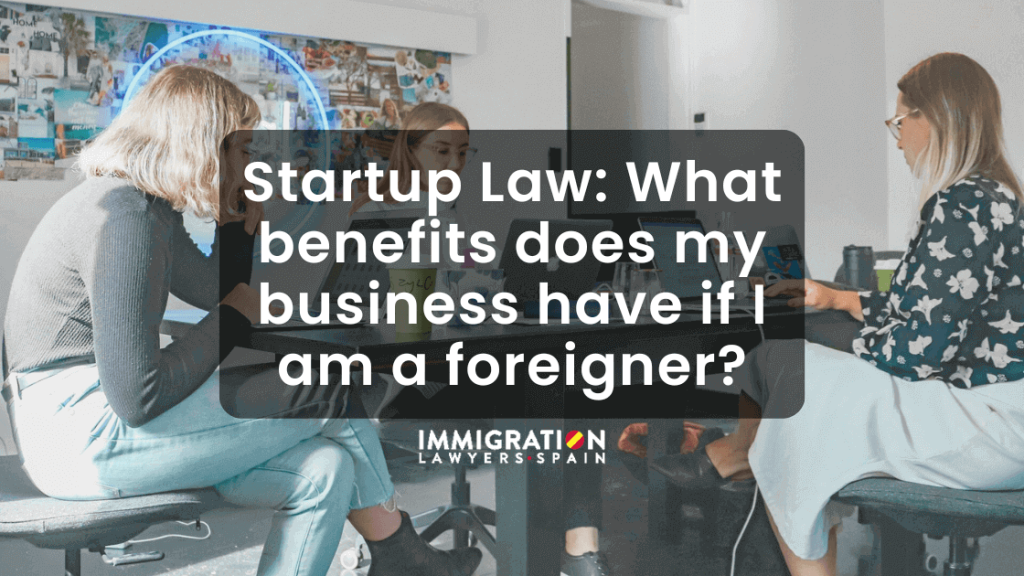
The Startup Law aims to attract foreign talent. It was recently renewed, as it is a law that has undergone different modifications. However, one of its main objectives is always to make foreigners see Spain as the ideal place to invest.
To make it easier for investment from other countries to enter, Spanish legislation has simplified the process for various professionals to practice in Spain.
So if you’re a foreigner looking to invest in Spain through a business or work route, keep reading! In this article, we’ll explain everything you need to know about how you can use the Startup Law to your advantage as a foreigner in Spain.
Content
ToggleWho does the Startup Law help?
The Startup Law targets digital nomads, remote employees, investors, and foreign workers, with the aim of encouraging increased investment in startups and positioning these companies as key players in driving the country’s economic digitization.
The legislation encompasses improvements in bureaucratic and fiscal aspects to facilitate the creation and investment of these types of companies.
Another important point is that the validity of residence permits is extended in order to retain international talent.
If you have a business idea and wish to execute it in Spain, we recommend that you seek the advice of lawyers who can advise and guide you through the process and management of your business.
6 advantages of investing and starting a business in Spain as a foreigner
For startups and foreign investors, several tax improvements have been introduced. One of them concerns the corporate tax rate: it is fixed at 15% during the first four years, provided that the company maintains its startup status during this time.
However, there are other benefits that foreign professionals can take advantage of, both to open their company in Spain and to reside in the country for an extended period:
Special expatriate regime
This regime has been in force since 2004 and is known as the ‘Beckham Law’. Employed professionals who move to Spain will be taxed under the Non-Resident Income Tax (IRNR), with a lower flat rate of 24% up to the first €600,000 generated.
Reduction of the fiscal resident period
Previously, you would not have been able to apply for Beckham Law if you were a resident in Spain any time within the last 10 years. Luckily, however, this number has been reduced to only 5 years.
Additional incentives for investment in startups
Initial investors can benefit from the same advantages granted to founding partners of a company.
Percentage of deduction for subscription of shares in the Personal Income Tax (IRPF)
The percentage of deduction for subscription of shares in the IRPF was increased from 30% to 50%, and the maximum deduction base was expanded from €60,000 to €100,000.
Validity of residence authorization
Investors and entrepreneurs starting their economic activities in Spain are allowed a period of one to three years.
A three-year period is calculated for highly qualified professionals starting work in companies in the country.
These permits can be extended for up to five years, at which point it is possible to apply for permanent residence.
For internship students seeking employment or intending to start a business after completing their studies, the period is one to two years. Afterwards, they will have to apply for the visa applicable to their situation.
Specific visa for digital nomads
Its main objective is to attract and retain specialized professionals, both employed and self-employed. Residency periods in the country are extended from one year to three. Digital nomads must maintain that 80% of their total income does not come from within Spain.
Bureaucratic Benefits of the Startup Law
It is clear that foreigners wishing to invest in Spain or open their business in the country can obtain a series of benefits and advantages that may be very interesting to them, leading them to consider moving to the country rather than staying in their country of origin.
In terms of legal processes, here are the two most favorable points:
- The need for the Foreigner Identification Number (NIE) for foreign investors is eliminated, and now only the Fiscal Identification Number required for the registration of any company or business will suffice.
- Individuals and legal entities must possess this NIF, and they can obtain it online through the Tax Agency. This agency must resolve this process within a maximum period of 10 business days.
What qualifies as a startup in Spain?
To qualify as a startup, the company must comply with the following conditions:
- It needs to be new, or at most five years old (seven for certain industries like biotechnology)
- The main office must be in Spain
- Most employees must be Spanish workers
- It must be innovative
- It must not be publicly traded, nor pay dividends
- It should not make more than ten million euros in sales
Considering the distinct approach these companies receive in contrast to others, the advantages should cease once the company stabilizes or when the period considered reasonable to establish a sustainable business model has passed.
So, do you have an international idea at a professional level? Do you want to open a business in Spain and don’t know how? If you’re interested in investing and starting your company in Spain, in addition to all these improvements in the Startup Law, let our team of lawyers advise and manage the entire process for you.
We’d be happy to help!
Get in touch with our lawyers and let us guide you step by step:





